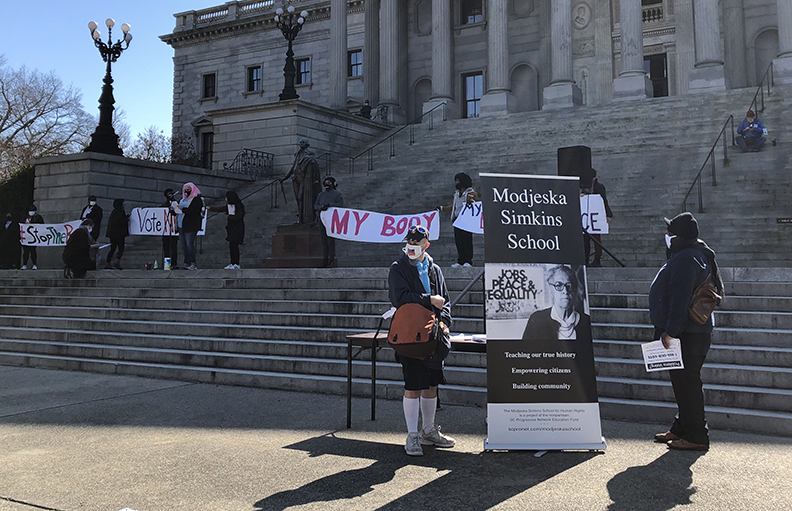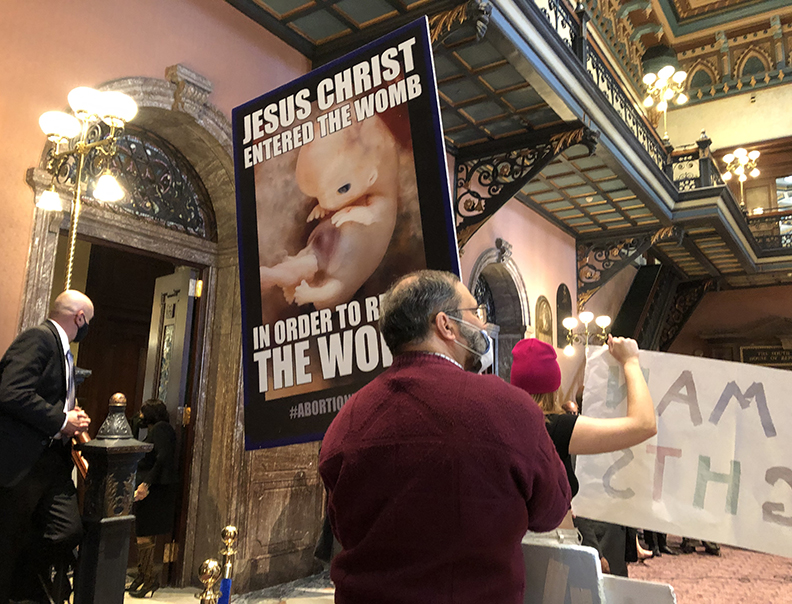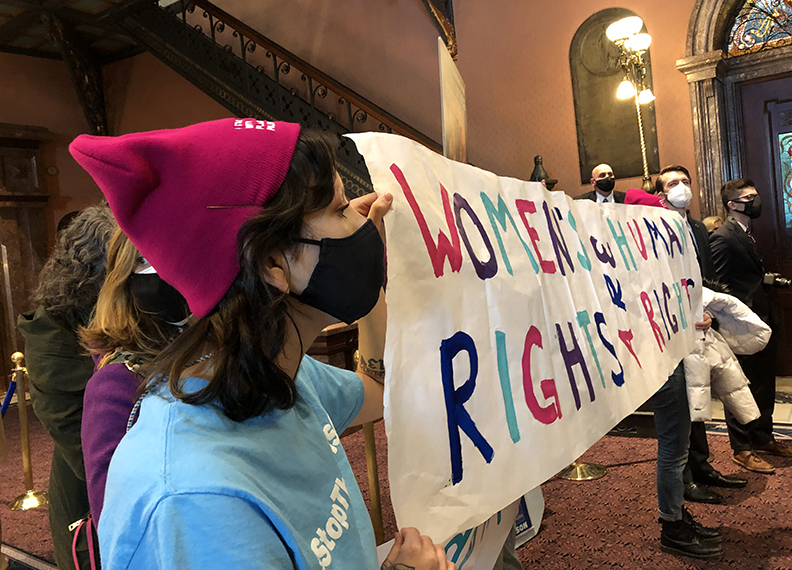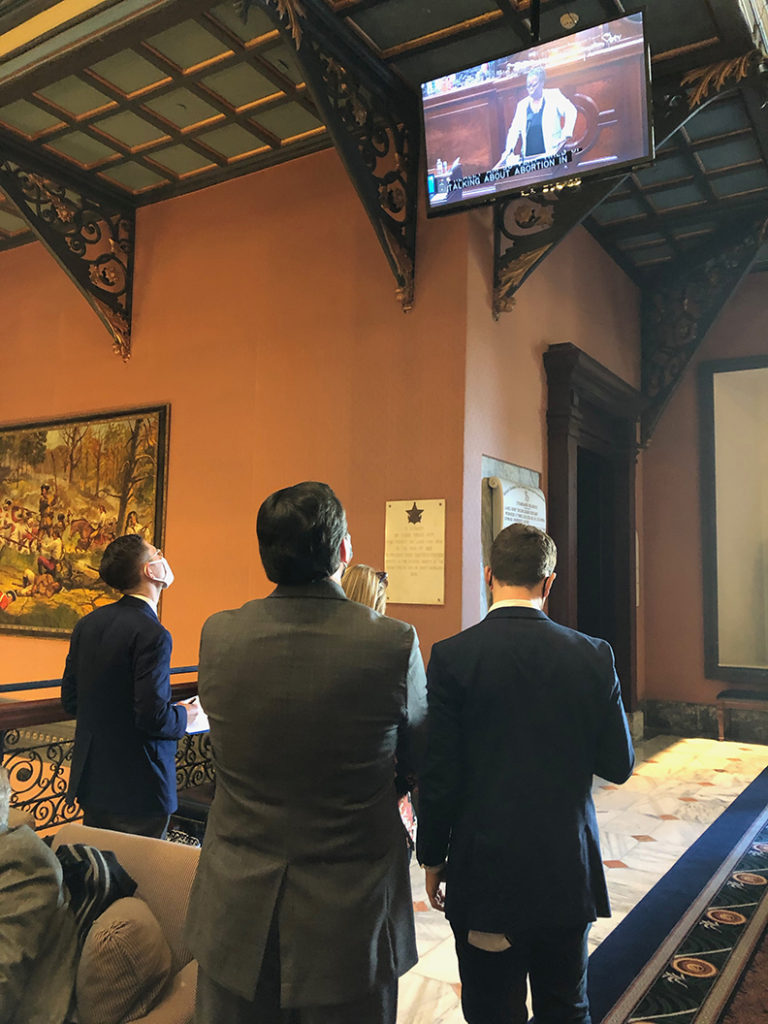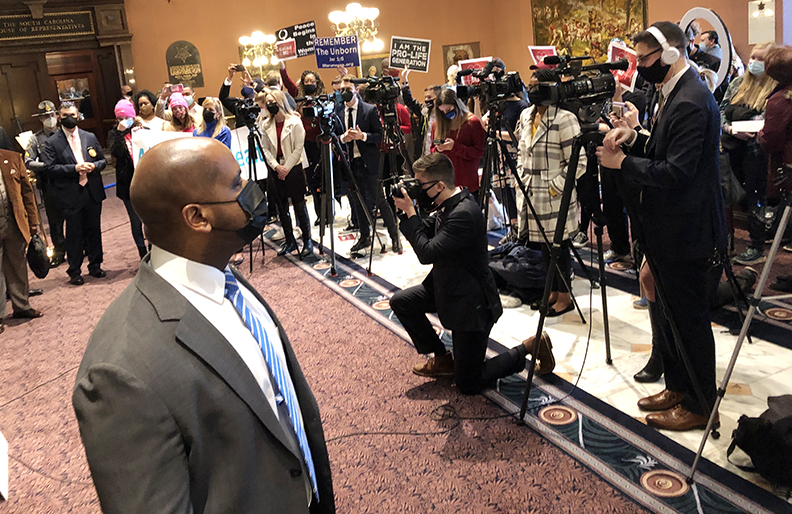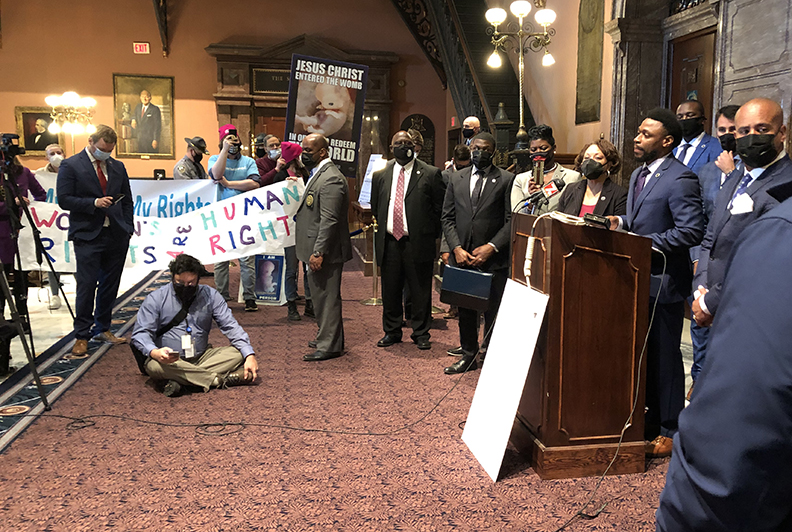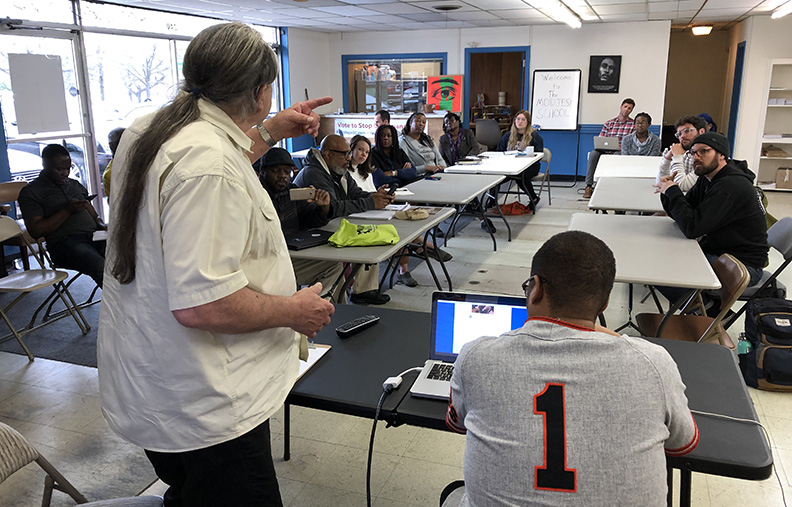Round-table conversation with Mandy Carter, Kevin Alexander Gray, Harriet Hancock, Brett Bursey, and Robert-John Hinojosa. Facilitated by Dr. Robert Greene II. This special session of the Modjeska Simkins School— a project of the SC Progressive Network — was part of the school’s Deeper Dive series, which is open to the public.
Author Archives: Becci
Lessons from the radical student-led Southern Negro Youth Congress
In a special session of the Modjeska Simkins School on April 26 that was open to the public, UNC professor Dr. Erik Gellman, author of Death Blow to Jim Crow, The National Negro Congress and the Rise of Militant Civil Rights, led discussion on the Southern Negro Youth Congress.
Founded in 1937, SNYC grew out of the National Negro Congress and the leftist student movement of the 1930s. SNYC was a radical, interracial organization that managed to make extraordinary gains in a brutally hostile political climate. It has much to teach today’s movement organizers.
Last call for the spring session of the Modjeska Simkins School
If you’ve been thinking about attending the Modjeska Simkins School, now is the time for action. To join what is shaping up to be a wonderfully diverse class, please submit your application by Monday, March 1. The session, which runs March 7 – July 3, meets on Monday evenings 6:30-8:30 on Zoom. (See class schedule at modjeskaschool.com.)
Melanie McGehee attended the school in 2019 with her precocious son Ian, then 14. So convinced of the school’s importance, Melanie used her recent birthday to encourage her friends to donate. “I would love to fund a scholarship to this year’s Modjeska School,” she wrote. “It literally brings to life SC history, and the class camaraderie brings hope and action.”
(We welcome donations of any amount to help pay for student scholarships and stipends for guest speakers. You can do that securely online or by sending a check to Modjeska School, POB 8325, Columbia SC 29202.)

Whether you want to be a community activist or just a more effective citizen, the school offers a unique education in SC history, its racially driven politics, and its oversized influence on the national stage.
“The Modjeska Simkins School of Human Rights is a MUST for understanding South Carolina politics, said Annette P. Bethel, who attended in 2018. The school helped focus her interest in women’s rights. After graduating, she relaunched, and currently leads, the Columbia NOW chapter. “Looking at politics from a historical lens is important. If one is serious about organizing, or simply wants to be more informed about South Carolina, the Modjeska School is a great in-depth study.”
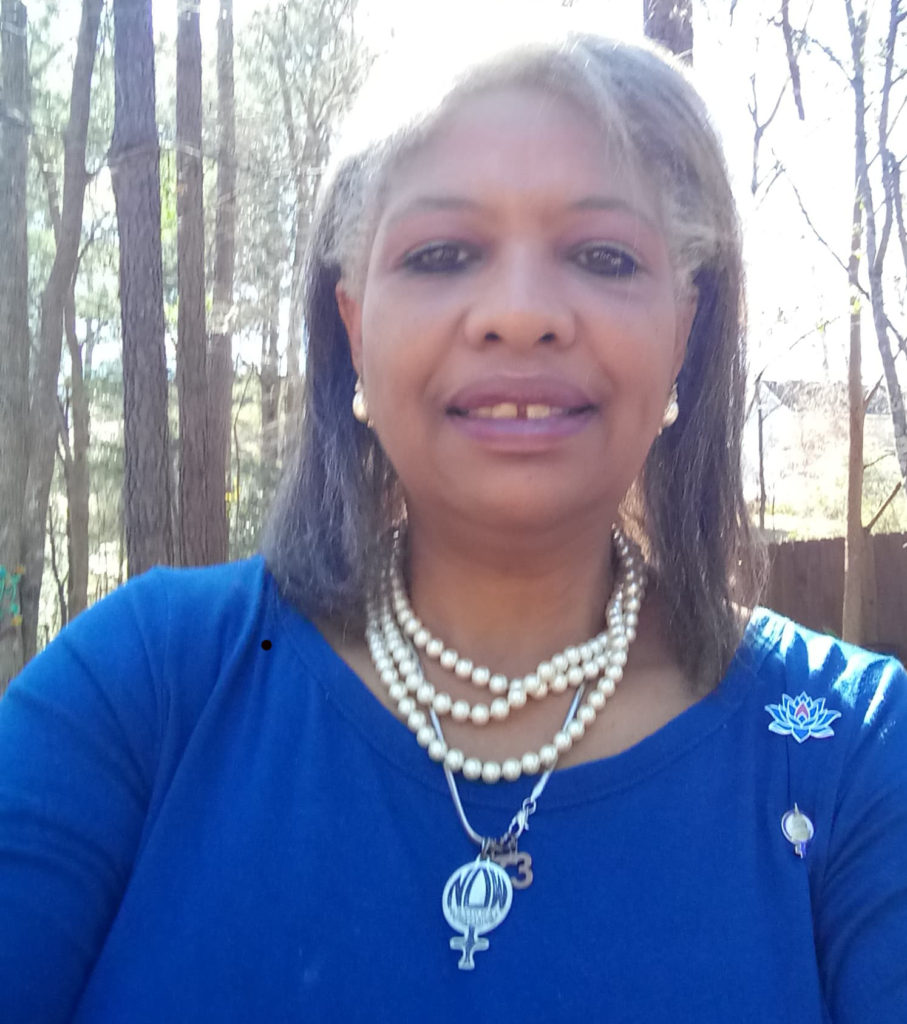
Some students sign up for the school to sharpen their organizing skills, other want to fill a gap in the social justice landscape. Dr. Laura Cahue, who graduated from the first Modjeska School class in 2015, wanted to expand her work protecting immigrant rights in South Carolina. The school helped crystalize her ideas, and gave her the support she needed to take the next steps.
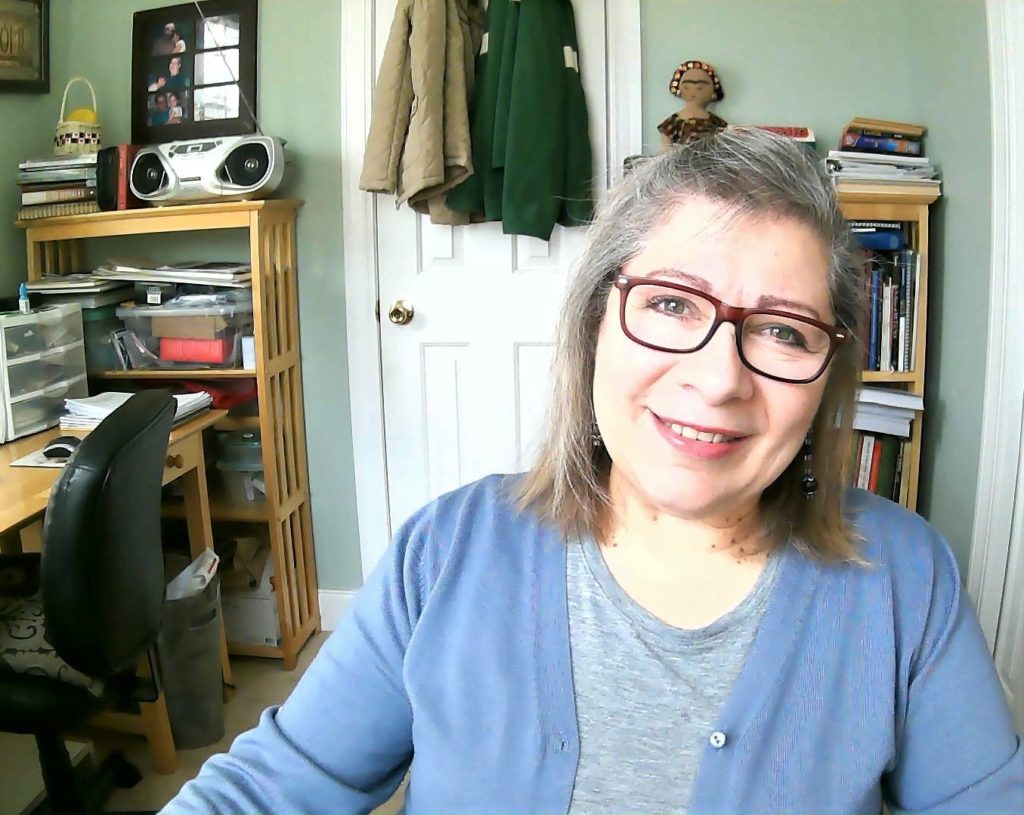
“For all of the non-profit organizations that exist in South Carolina, very few of them are led by Latinx people,” she said. “I am Mexican American, and when I heard about the Network’s Modjeska Simkins School, I was most excited by the part about participants being expected to develop an organizing project by the end of the course. Mine was the Grassroots Alliance for Immigrant Rights, an umbrella organization designed to coordinate state-level actions for immigrant-led groups. We fight against immigration enforcement measures that seek to criminalize our communities and incentivizes law enforcement agencies to cage our people.”

“Our local group is called Fuerza Jirasol. We raise our own funds, and use them to leverage our community’s power to get things done. We have conducted outreach in out communities, and even in a pandemic we were able to work to register Latinx votes and get them to the polls. Also during the pandemic, we were able to secure a small grant from Mijente to do the ground work for starting our own Traditional Embroidery Cooperative business, Bordados Jirasol.
The Network has supported these efforts by serving as our fiscal sponsors and an incubator for us to take the next step to establish our own 501c(3). These projects and initiatives were seeded within the Modjeska Simkins School.”

Dr. Robert Greene, who teaches history at Claflin University in Orangeburg, will lead the session, which will be held on Zoom. Last year’s graduate Lillian Boatwright is a fan. “Hands down, he is my favorite lecturer in any course I have taken. He not only knows his stuff, but delivers it in a way that draws you in and makes you engage.”
See modjeskaschool.com for more about the school, class schedule, or to apply. The $250 tuition fee may be paid in installments. Some partial scholarships are available. Questions? Call 803-808-3384 or email network@scpronet.com.
Pat, we’d like to buy a “d”
As part of the Adopt-A-Street program, SC Progressive Network volunteers working on behalf of the Modjeska Simkins School have earned signage to mark their work over the past year cleaning up the stretch of Marion Street between Elmwood to Taylor.
Unfortunately, they misspelled Modjeska. It’s an easy mistake to make, as Modjeska herself grumbled about the difficult name she was saddled with. We’re working to get it corrected.
We appreciate everyone who has put time into helping beautify our neighborhood, but especially Chris Gardner, who has been our liaison to the City and has coordinated the work crews.
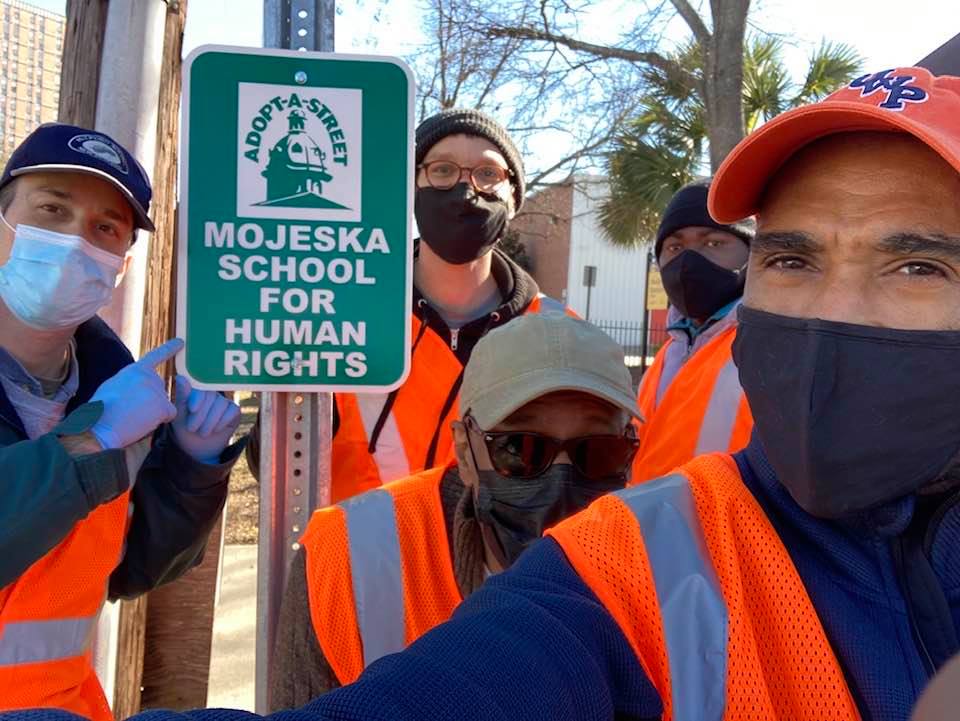
The patriarchy is alive and well in South Carolina
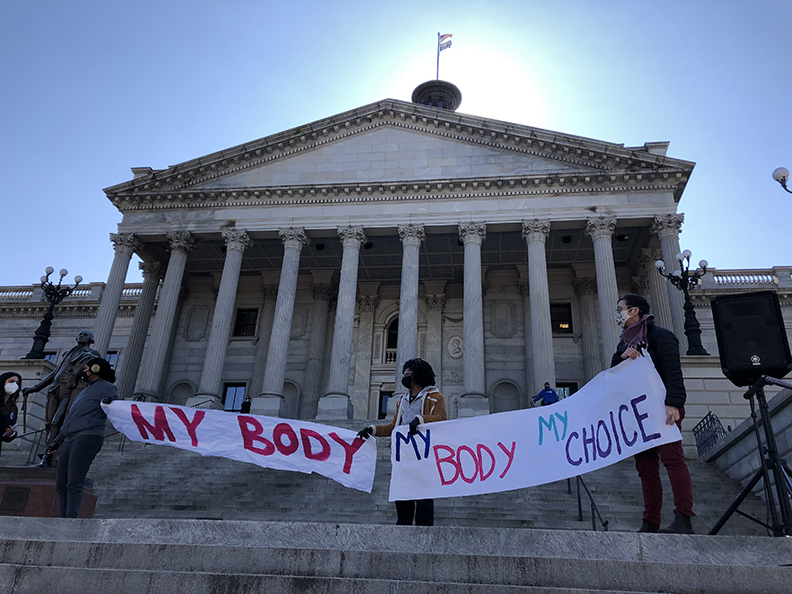
The overwhelmingly male state legislature finally passed the “fetal heartbeat” bill after years of chipping away at women’s access to health care in South Carolina. The legislation, which effectively bans abortion in the Palmetto State, will face a legal challenge, costing the state money it cannot afford.
It speaks volumes about the legislature’s priorities that this is what lawmakers are jamming through in the middle of a pandemic and the challenges it poses for education, health care, and the economy.
The SC Progressive Network turned out Feb. 17 at the State House to support WREN, Planned Parenthood, and other allies working to protect women’s reproductive rights.
Apply now for the spring session of the Modjeska Simkins School
Perhaps not since the Civil War has the country faced such a perilous future. To survive, we must cultivate a more informed and engaged citizenry. It is that very mission at the heart of the Modjeska Simkins School for Human Rights, launched in 2015 to teach a people’s history of South Carolina and skills to be an effective citizen or grassroots organizer in the Palmetto State.
The school is now accepting applications for the spring session, which begins with orientation on March 7 and ends with graduation on July 3. Classes will meet on alternate Mondays 6:30pm-8:30pm on Zoom.
“What makes the Modjeska Simkins School unique is that it reminds us that history is not something simply found in books, but is part of our everyday existence,” said the school’s faculty coordinator, Dr. Robert Greene II. “Knowing that history helps us to make informed choices about how to change the world around us — for the better.”
Greene, who teaches history at Claflin University in Orangeburg, said understanding our history and basic civics “is the best defense against all the terrible and hurtful ideologies of modern society — whether racism, sexism, nationalism, or homophobia. The Modjeska Simkins School continues the longer tradition from freedom movements around the world of building up citizens who then, in turn, build up their societies for all.”
The school, named for human rights activist Modjeska Monteith Simkins, is a project of the SC Progressive Network, which for a decade had offices in her home until it was turned into an historic site a few years ago. The Network is now housed next door, where the school will meet once the pandemic is over.
Orientation session, March 2020
Network Director Brett Bursey, who was mentored by Simkins for nearly two decades, said the school is the most rewarding project in the Network’s 25 years of grassroots organizing. “It has far exceeded our expectations. We have the input and involvement of extremely gifted teachers and activists. The students have taken it seriously, and have gone on to do important work on boards, commissions, in classrooms, and in community organizations across the state.”
Greene is a blogger and Book Review Editor with Society of U.S. Intellectual Historians and Lead Associate Editor, Black Perspectives, African American Intellectual History Society. He will be joined by an impressive line-up of guest speakers that include writers, historians, and seasoned political activists.
South Carolina has long had an over-sized influence on the national stage, in terms of individual players as well as historical significance. The reasons can be traced back to the state’s beginning, the only state built on a slave economy and maintained through the centuries by its exploitation of the working class, and its unrelenting resistance to progressive change. Connecting those dots — and understanding what they mean — forms the core of the school’s curriculum.
Classes cover political and social theory, as well as strategies, tactics, and practical tools for making progressive change. Upon graduation, students are asked to put what they’ve learned to work by getting involved in one of the Network’s ongoing projects or create one of their own.
Enrollment is open for this year’s spring session, which runs March 7 – July 3. Classes will be held on alternate Monday evenings 6:30-8:30 on Zoom. Visit the web site for more about the school, class schedule, or to apply. Some scholarships are available.
The school gratefully accepts donations for scholarships and stipends for our guest speakers. You may donate securely online, by calling 803-808-3384, or by sending a check to POB 8325, Columbia SC 29202.
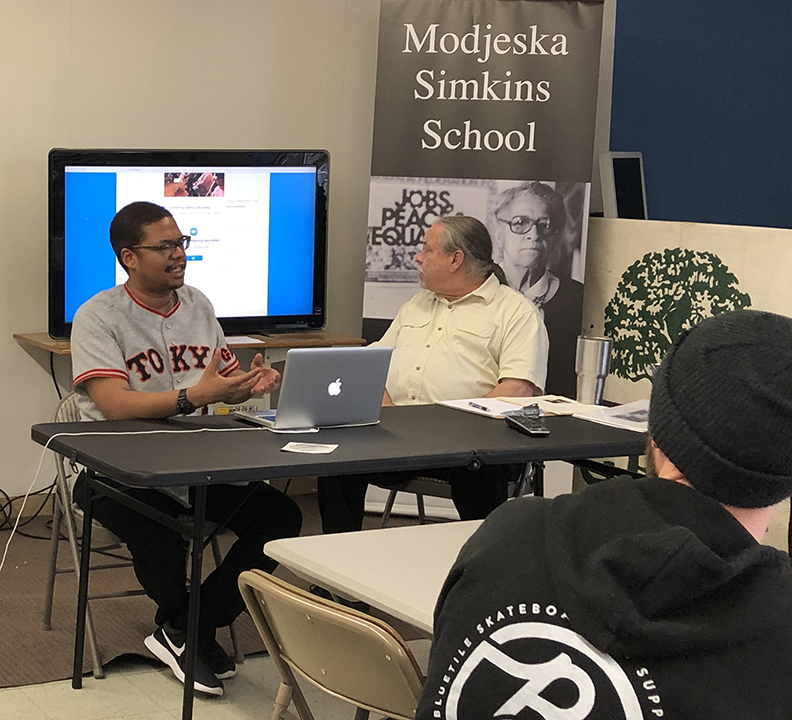
Robert Greene (left) and Brett Bursey lead last year’s class orientation. Half the students came in person that day in March, just as the pandemic was hitting South Carolina. The rest joined online. It was the only time the class met face-to-face. We are better prepared for distance learning this session, and know the format even has its advantages.
Redistricting timeline complicates fair maps campaign
James Campbell, 1925-2021
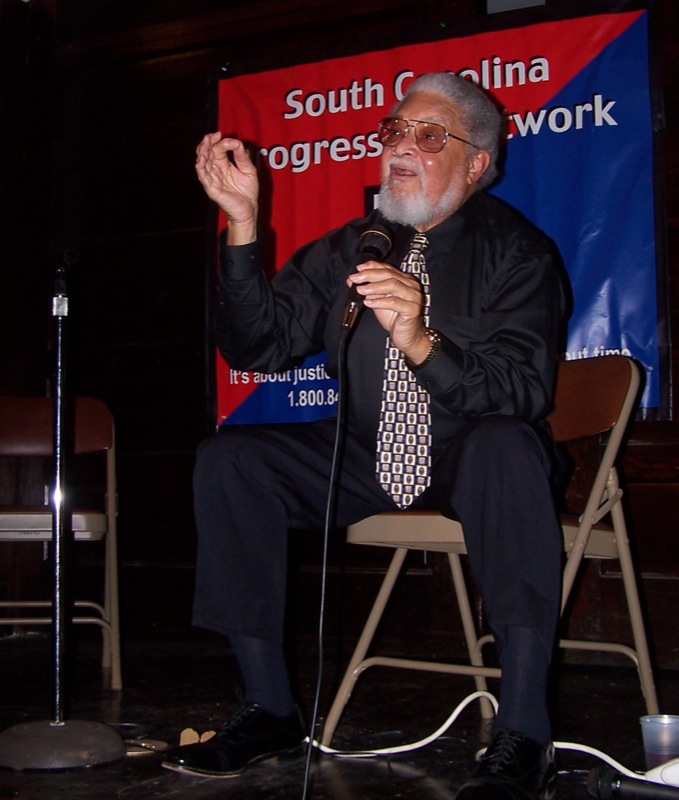 Jim Campbell speaks at Network conference at Penn Center
Jim Campbell speaks at Network conference at Penn Center
Our dear friend, teacher, colleague, and mentor Jim Campbell died on Jan. 30 at age 95. His involvement in the SC Progressive Network goes back more two decades, and we are all richer for it.
He was generous with his time and talent, always eager to share his vast knowledge of history and the radical political analysis that informed his life’s work.
We are planning a tribute in conjunction with the upcoming session of the Modjeska Simkins School, which begins in March. Meanwhile, here are a few links worth watching and reading.
WATCH: UofSC history professor Dr. Bobby Donaldson interviews James Campbell in 2017 at Avery Research Center in Charleston.
READ: Post and Courier profile
WATCH: The Guardian video after the Charleston church massacre in 2015
SEE: Campbell’s papers archived at Avery Research Center

